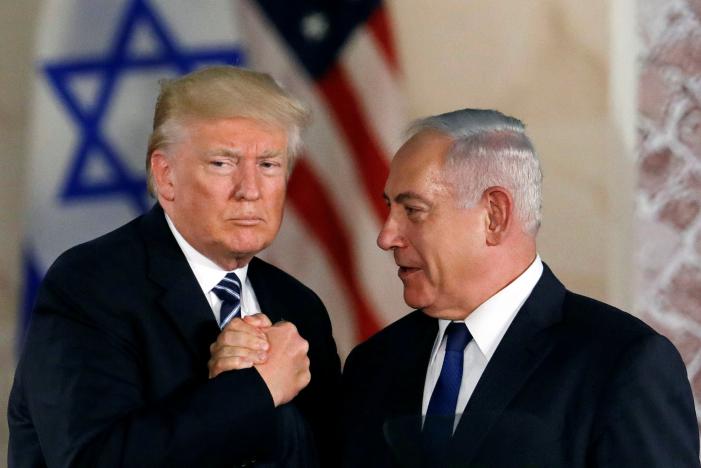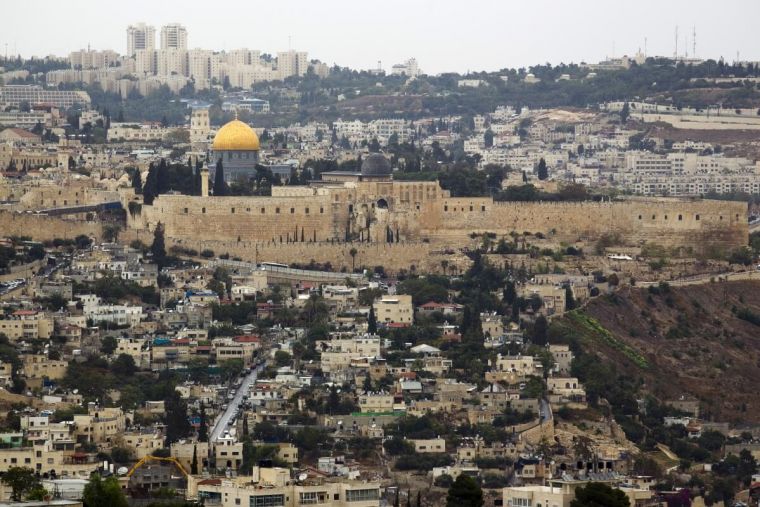Q & A explainer: Why Trump is likely to disappoint the Israelis by not moving the US embassy to Jerusalem

Why is the question of the US moving its embassy to Jerusalem on the agenda again today?
The reason today is significant goes back to 1995, when the US Congress approved the Jerusalem Embassy Act, which requires that the American embassy be moved from Tel Aviv to Jerusalem.
Since then, successive US presidents – both Democratic and Republican – have exercised a waiver delaying its implementation every six months since on national security grounds, and official US policy does not recognise Jerusalem as Israel's capital.
Trump would have the power to enact the embassy law simply by failing to exercise the waiver, enabling the embassy move which he promised repeatedly during the presidential race.
Today, June 1, marks one of the six-month intervals in which the waiver has come up for being signed.
Why is moving the embassy so controversial?
While Israel considers Jerusalem its 'eternal, undivided capital', the Palestinians regard the east of the city – occupied by Israel in the 1967 Six Day War – to be the capital of any future Palestinian state. Moving the embassy would arguably threaten a two-state solution in which the agreed division of Jerusalem would be key.
The US, the UN and almost every country in the world currently refuse to accept that Jerusalem is Israel's capital, with most major embassies functioning in the sea-side business capital, Tel Aviv. International consensus is that East Jerusalem is occupied territory, just like the West Bank.
What is the background to speculation that Trump may make the controversial move?
In September last year, Trump delighted Israel's Prime Minister Benjamin Netanyahu by telling him during a lengthy meeting in New York that if he won the presidential election, the US would 'recognise Jerusalem as the undivided capital of the State of Israel'.
Linked to this, Trump promised to move the US embassy in Israel from Tel Aviv to Jerusalem.

In December, Kellyanne Conway, a spokeswoman for Trump, reiterated in a radio interview that Trump 'made it very clear during the campaign' that he wanted to make the move, and that she had 'heard him repeat it several times privately, if not publicly'.
Later, Netanyahu said that such a move would be 'great'. He said: 'Regarding the idea of opening the US Embassy to Jerusalem, I will respond to this in one word: Great.'
How have the Palestinians reacted to the proposal?
In January, the Palestinian President Mahmoud Abbas said the move could threaten peace in the region.
In December, Mustafa Barghouti, a Palestinian politician, said he was 'shocked' after Conway's comments. He added: 'If the US takes such a decision, it will not only be violating international law, but violating a unanimously respected international principle that no country can annex another's territory by force'.
Since then, speculation has significantly dampened on the issue, with most inside Israel and the US believing it isn't going to happen. This week, in the run up to the decision day today, publicly at least there was silence from Jerusalem and Netanyahu, though the PM has made it clear that he has urged Trump to move the embassy.
What is the wider context?
The context is that there is under Trump a fresh drive for peace talks between Netanyahu and the Palestinians, led by President Abbas, potentially reviving the dormant, so-called Middle East peace process.
It could well be that Trump's desire to keep Abbas and the Palestinians in the game has driven his wavering over moving the embassy.
Meanwhile, although many cynical observers argue that Netanyahu does not want peace, and instead merely prefers the status quo which includes the expansion of settlements that are deemed illegal under international law and which make a solution increasingly difficult, some are more hopeful. One diplomatic source in the region told Christian Today during the Archbishop of Canterbury Justin Welby's visit last month that Trump had brought Netanyahu, however reluctantly, 'out to play' – which meant the conservative PM would have to engage in a new round of talks whether he wanted to or not.
This has led some on Israel's right to allege that there has already been a 'done deal' between Trump and Netanyahu, with the latter being pulled to the 'left' by the new engagement.
In the end, this may be too good to be true. Funnily enough and perhaps by chance, when Trump visited the region last week, he echoed Welby's formula on his own visit earlier last month, that there is a rare 'moment of opportunity' for peace.
Whether or not that opportunity is seized remains to be seen.
But what is not in doubt is that Trump has – by force of the reality of office and what Harold Macmillan called 'events' – matured, at least on the question of moving the embassy to Jerusalem, and that by not doing so he keeps an elusive deal alive as a possibility, if not a likelihood.











